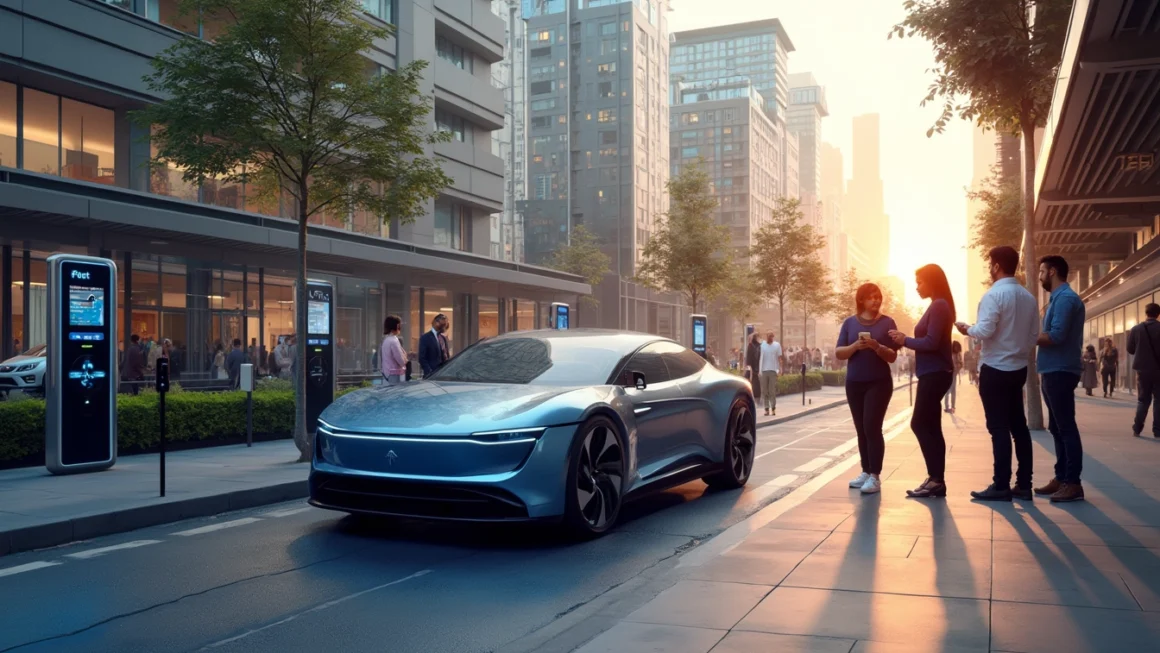The Rise of Electric Vehicle Charging Infrastructure
Table of Contents
As the world shifts towards more sustainable transportation options, electric vehicles (EVs) are gaining popularity at an unprecedented rate. However, the success of this green revolution hinges on a crucial factor: the availability of reliable charging infrastructure. Recent developments in the UK are shedding light on the challenges and opportunities in this rapidly evolving sector.
The Current State of EV Charging in the UK
The UK government has set ambitious targets for the transition to electric vehicles, aiming to ban the sale of new petrol and diesel cars by 2030. This bold move has accelerated the need for a robust charging network across the country. Currently, there are over 37,000 public charging points in the UK, but experts argue this number needs to increase significantly to meet future demand.
The £4.5 Billion Investment Plan
In a significant step towards addressing this challenge, the UK government has announced a £4.5 billion investment plan for EV charging infrastructure. This substantial funding is aimed at:
- Increasing the number of public charging points
- Improving the reliability of existing chargers
- Ensuring equitable access to charging facilities across different regions
This investment is expected to play a crucial role in boosting consumer confidence in electric vehicles and accelerating their adoption.
Challenges in Implementation
Despite the promising investment, several challenges remain in the rollout of EV charging infrastructure:
- Grid capacity: The increased demand for electricity may strain the existing power grid.
- Geographic distribution: Ensuring equitable access to charging points in both urban and rural areas.
- Technological standardization: The need for compatible charging systems across different EV models.
- Maintenance and reliability: Keeping the growing network of chargers operational and efficient.
Addressing these challenges will be crucial for the successful expansion of the EV charging network.
The Role of Private Sector
While government investment is significant, the private sector also plays a vital role in the development of charging infrastructure. Companies are increasingly seeing opportunities in this growing market. From innovative charging technologies to user-friendly apps for locating and using charging points, private enterprises are driving innovation in the sector.
Impact on Urban Planning and Real Estate
The expansion of EV charging infrastructure is not just a matter of energy and transportation policy; it’s reshaping urban landscapes and real estate development. New buildings are increasingly being designed with EV charging capabilities, and existing properties are being retrofitted to accommodate charging stations. This trend is likely to influence property values and urban development patterns in the coming years.
The Future of EV Charging
As technology advances, we can expect to see more innovative solutions in EV charging. Some exciting developments on the horizon include:
- Wireless charging: Allowing vehicles to charge without physical connections
- Ultra-fast charging: Reducing charging times to be comparable with refueling conventional vehicles
- Vehicle-to-grid technology: Enabling EVs to give back to the grid during peak hours
These advancements could revolutionize how we think about and use electric vehicles.
Global Context and Comparison
The UK’s efforts in expanding EV charging infrastructure are part of a global trend. Countries like Norway, the Netherlands, and China are also making significant strides in this area. Automation tools are playing a crucial role in managing and optimizing these growing networks of charging stations, ensuring efficient operation and user satisfaction.
Conclusion
The £4.5 billion investment in EV charging infrastructure marks a significant milestone in the UK’s journey towards sustainable transportation. While challenges remain, the commitment shown by both the government and private sector is encouraging. As the network of charging points expands and technology continues to evolve, we can expect to see a transformative impact on how we travel and think about mobility in the future.
The success of this initiative will not only contribute to reducing carbon emissions but also position the UK as a leader in sustainable transportation infrastructure. As we move forward, continued collaboration between government, industry, and consumers will be crucial in realizing the full potential of electric vehicles and creating a cleaner, more sustainable future for all.




